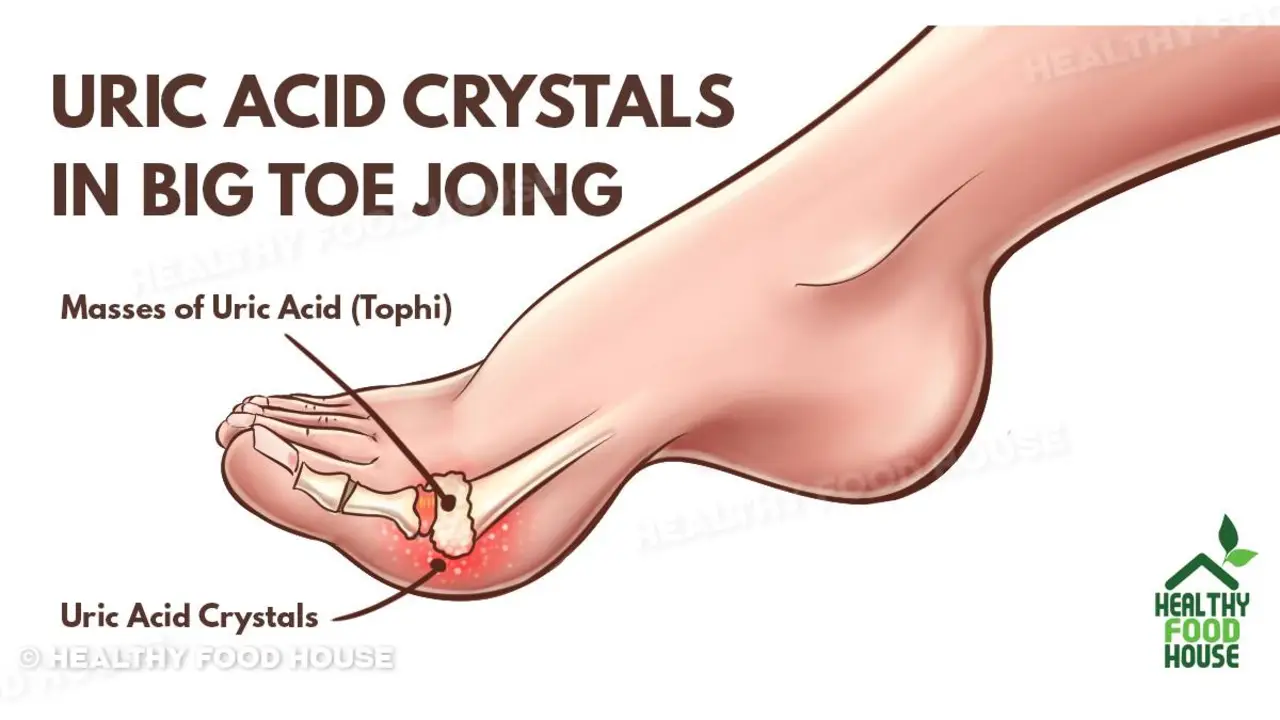You probably heard that gout is just from eating steak and drinking beer. The November 2023 post on Exact-Pharma clears that up and gives straight, useful facts. If you want actionable tips — not myths — this summary will help you spot false claims and take smart steps.
Myth: Only rich foods cause gout. Fact: Diet can trigger attacks, but genetics, kidney function, body weight, and some medicines matter more. Cutting back on alcohol and sugary drinks helps, but diet alone rarely fixes high uric acid.
Myth: Everyone with high uric acid gets gout. Fact: Many people have elevated uric acid and never get joint pain. Gout happens when uric acid crystals build up in joints. Monitoring levels and risk factors matters more than panic over one lab result.
Myth: All purines are equal — avoid them all. Fact: Purine-rich vegetables don’t raise gout risk the way red meat and shellfish can. Focus on limiting processed meats and high-purine animal foods rather than cutting vegetables out of your diet.
Myth: Natural remedies cure gout. Fact: Cherry juice, vitamin C, or herbal mixes might lower uric acid slightly, but they don’t replace proven medical treatment when you have recurrent attacks or high levels. Use them as an add-on, not the only plan.
Myth: Uric-acid drugs are too dangerous. Fact: Medicines like allopurinol and febuxostat help many people safely when used correctly. Side effects can occur, so doctors match drugs to each person and monitor therapy.
Check your numbers. If you’ve had a gout attack or your test shows high uric acid, ask your doctor how often to repeat the test. A common target for people with gout is keeping serum urate under about 6 mg/dL, but your doctor will advise what’s right for you.
Change what matters. Lose weight if you’re overweight, cut back on beer and sugary sodas, drink water, and lower portions of red meat and shellfish. Small, steady changes beat extreme diets that are hard to keep.
Follow treatment plans. If a doctor prescribes urate-lowering therapy, take it as directed. Stopping medication suddenly can trigger flares. During an attack, short courses of NSAIDs, colchicine, or steroids often work best—talk to your clinician about options.
Watch for complications. Recurrent attacks, visible lumps (tophi), kidney stones, or declining kidney function mean you should see a specialist. Early, consistent care prevents long-term joint damage.
This November post aimed to cut through confusion and give clear next steps. Want the full myth-busting list and practical tips? Read the full article on Exact-Pharma and bring your questions to your next doctor visit.

Hi there, gentlemen! In today's blog post, we're going to tackle some of the most common myths and misconceptions surrounding high uric acid levels and gout. I bet you've heard many of them before, but rest assured, our aim is to debunk these myths and arm you with the facts. Let's navigate this journey together, separating fact from fiction when it comes to your health.
Need Mestinon info fast? Here’s how to reach the official label, dosing, side effects, shortages, and safe-use tips in 2025-without wading through junk search results.
Herpes simplex virus (HSV-1 and HSV-2) causes cold sores and genital outbreaks. Learn how antiviral therapy reduces symptoms, prevents transmission, and manages complications - with real data on outbreaks, testing, and treatment.
Folic acid is common in supplements, but many people can't process it. Learn how methylfolate, folate, and folinic acid work better for energy, mood, and pregnancy-especially if you have MTHFR gene variants.
Clindamycin carries a high risk of triggering C. difficile infection, a potentially deadly gut condition. Learn the warning signs, when to seek urgent care, and why safer alternatives often exist.